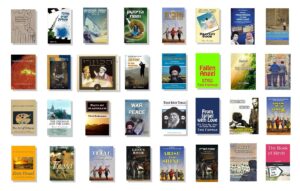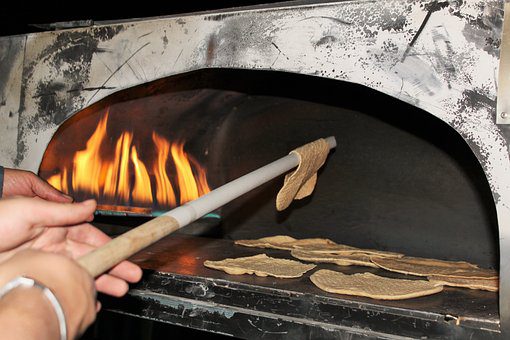Chametz, Brit Milah, and Spiritual Freedom
by Tzvi Fishman

[A selection of the author’s books on a wide range of Jewish Themes can be found at Amazon Books.]
The holiday of Pesach celebrates our freedom from the bondage of Egypt with the goal of establishing the Nation of Israel in Eretz Yisrael. In addition to our physical liberation from the slavery of Pharoah and his evil taskmasters, we experienced a spiritual liberation as well from the impure Egyptian culture and the rampant immorality that festered there. The commandments of the Pesach holiday, and especially the Seder night, are designed to help us re-experience both facets of our freedom, the national/physical and the cultural/spiritual as well.
In order to explore our spiritual liberation and thus better understand who we are as a nation, we will take a glimpse at some secrets of Torah, culled from the Midrash, the Zohar, the writings of the Arizal, and the teachings of our Tzaddikim, masters of the Kabbalah from the past and present. We will present just a few, in a very simple manner, with the understanding that the matters are much deeper and far more esoteric than our explanation.
Ancient Egypt was the spiritual and cultural cesspool of the world. Promiscuity, adultery, and sexual perversion were the norm. When our Sages write that no foreign nation in Egypt ever escaped from the land, they mean it in a spiritual sense, as well as the physical. The clutches of temptation and sin were so powerful that no people, in the natural course of events, could shake off the shackles of lust that marked Egyptian life. The Jews were no exception. After 200 years dwelling in such a polluted, immoral environment, we plummeted to the 49th degree of impurity and would have been immediately destroyed if G-d had not miraculously interfered and rescued us with the utmost haste, speeding our exodus from the land.
Our Sages tell us that we were redeemed from Egypt due to the merit of the two mitzvot which G-d commanded us to perform on the eve of our departure – the korban Pesach and the brit milah. Both of these commandments were designed to free us from our spiritual slavery to the lusts of the body, and liberate us to true freedom as servants to G-d. Among a cornucopia of bestial doings, the Egyptians worshipped the lamb. Among the domestic beasts, sheep are known for their fecundity. In a similar manner, licentiousness was an integral part of this idol worship. Our Sages teach us that the Jewish People only worshipped idols as an excuse to engage in the sexual debauchery that went with it. In commanding every Jewish household in Egypt to take a lamb, the Egyptians’ god, and slaughter it for the Pesach offering, G-d was commanding us to slaughter the physical lusts in ourselves that lead to the perversion of the holy marital union, and to the pollution of the holy life force of our nation. Interestingly, we were commanded to tie the lambs to our bedposts, not to the door, or the window, or kitchen table, but to our beds, precisely to drive this point into our individual and national consciences that we are to be a holy people, separated by the purity of our sexual lives from all of the other nations in the world.
This is the very same lesson of the brit milah. Only a man who was circumcised was allowed to partake in eating the Passover lamb. The removal of the foreskin both symbolizes, and physically effects, the removal of the impure physical lusts that accompany the marital union. On the eve of our departure from the bondage of Egypt and from our servitude to its debauched and immoral culture, we were called to renew the Brit of our Forefathers, the founding Covenant between G-d and the Jewish People, whereby we safeguard the purity of our sexual lives, symbolized by the brit milah, and G-d, for His part, promises us the Land of Israel as our eternal inheritance. Thus the Zohar teaches that in the merit of the blood of the slaughtered Paschal lamb (the korbon Pesach) and the blood of the brit milah, we were redeemed from the spiritual dungeon of Egypt.
This mixture of blood was to be splattered on the doorposts of our houses, as a sign to G-d that a Jew lived within, when G-d came to slaughter the firstborn of Egypt and to lead us out of slavery:
“And they shall take the blood, and put it on the two side posts and on the upper door post of the houses in which they shall eat…. And the blood shall be to you for a sign upon the houses where you are; and when I see the blood, I will pass over you, and the plague shall not be upon you to destroy you, when I smite the land of Egypt…. For the L-rd will pass through to smite Egypt, and when He sees the blood upon the lintel, and on the two side posts, he will pass over the door (petach), and will not allow the destroyer to come into the house to destroy you” (Shemot, 12, 7-23).
Obviously, G-d does not need signs to know whether a Jew or an Egyptian lives in a certain house. The Almighty sees everything without needing splatterings of blood on doorposts. So what is the meaning of this? Once again, the secrets of Torah illuminate our understanding. Based on the Zohar, the Kabbalist, Rabbi Eliahu Leon Levi, of blessed memory, taught that the underlying mystical meaning is speaking about us. Without going into details, the “petach” of the house represents the place of the brit milah on the body. Just as the word “Shaddai” is written on the outside of a mezuza, signifying one of the Names of G-d, so to the brit milah is considered to be invisibly stamped with this same Name of G-d. When a man guards the holiness of his sexual life, he bears the Name “Shaddai,” inscribed on his Brit. But if, G-d forbid, he succumbs to sexual transgression, the Hebrew letter “Yud” flies off from the Name, leaving שד, the Hebrew word for a destructive spiritual force which can have many negative effects on life. This is the esoteric meaning of, “He will pass over the door (petach), and will not allow the destroyer to come into the house to destroy you.”
Once again, we see that the commitment to abandon sexual transgression was a key to our redemption from Egypt. This separation from sexual immorality is the essence of the Jewish People, “a nation of priests and a holy nation.” Only when we rose above the sordidness and pollution of Egyptian culture could we escape from the chains of its bondage.
Now let’s take a glimpse at our painstaking search for bread crumbs and leaven before the holiday of Pesach begins. Once again, Rabbi Levi explains the inner spiritual meaning according to the Kabbalah. “Some people think that by scattering ten pieces of bread around the house, representing the ten foremost evil spiritual forces (kleipot) embodied in the 10 sons of Haman, and by burning them in the morning, they have gotten rid of all of their chametz. However, if a person has not done t’shuva for sexual transgressions, his home is filled with the negative spiritual forces that are created when semen is spilled in vain. This is the spiritual chametz which we are commanded to oust from our homes. When a man burns his bread crumbs, he should cry out to G-d in tears and beg G-d to forgive him for his errant ways and all of the blemishes he caused to the Brit. Then he can sit down to his evening Seder with a clean heart, prepared to receive all of the transcendental spiritual treasures of the night.”
Have a happy and kosher Pesach!






